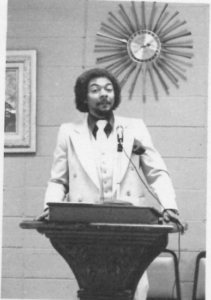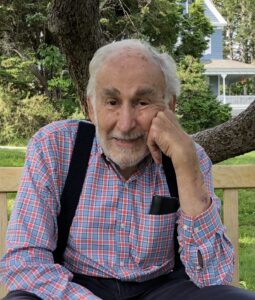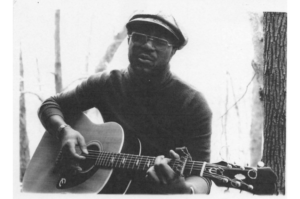
Arnett Lewis and Shelia Collins brought the case of small town Mississippi mayor, Eddie James Carthan, Jr., to the attention of the United Methodist Voluntary Services (UMVS) network in 1980. It was already becoming one of the most controversial cases in Mississippi since the heyday of the Civil Rights Movement. This was astounding in and of itself given Mississippi’s racial past and notoriety.
Carthan was the first Black mayor of a Mississippi town since Reconstruction ended in 1877. Every political office and electoral appointment in the state since then had been held by a white person. Tchula was a mere dot on the map with barely a thousand Black voters. Yet a mobilization campaign led by the United League of Holmes County in which Tchula was located elected Eddie J. Carthan. Depending on who you talked to then, Carthan’s election was either a sign of the rising democratic potential among Blacks in the state, or a threat to the “Mississippi (meaning white) way of life.”
Carthan and his city administration was immediately set upon by forces identified with the economics of the planter class: local banks refused to lend the town money until state and federal monies arrived (until then a common practice); hooded night-riders (meaning the Ku Klux Klan) terrorized Black farmers whom it was assumed must have voted for Carthan.
Before long, Mayor Carthan was indicted for various crimes, beginning with malfeasance in office and misuse of Federal dollars, growing to include drug running, and culminating in a capital murder charge that could have resulted in his receiving the death penalty. (That final charge stemmed from a man killed by an arsonist in a convenience store owned by the mayor and his brother.)
Editorials across the state called for Carthan’s conviction and sentencing to at least life imprisonment. Members of the white United Methodist Church, outraged once they learned that its church offerings had been used by UMVS to support Mayor Carthan’s Defense Fund, passed resolutions against use of its mission dollars for political purposes; Sheila Collins was fired as a result. Yet Carthan was exonerated of all charges against him.
Some credited the organizing of a network of grassroots groups across the U.S. with saving Carthan’s life. The “Free Eddie Carthen Campaign” was orchestrated by Jim Dunn, “building a net that works,” and the fledging organization: The People’s Institute for Survival and Beyond. It was the first such example of the Institute’s organizing prowess. It would not be the last.
— Written by Rev. David Billings, longtime PISAB core trainer/organizer

Reverend John Arthur Collins died peacefully in his sleep at home in New Rochelle, NY onJanuary 27, 2025. Rev. Collins was born in Chicago
As we all navigate this current moment, we take strength in the commitment of anti-racist organizers from around the country. Recently, an organizer shared testimonials

February 17th marks the anniversary of Dr. Jim Dunn’s transition to the village of the ancestors. Jim was the co-founder of The People’s Institute for